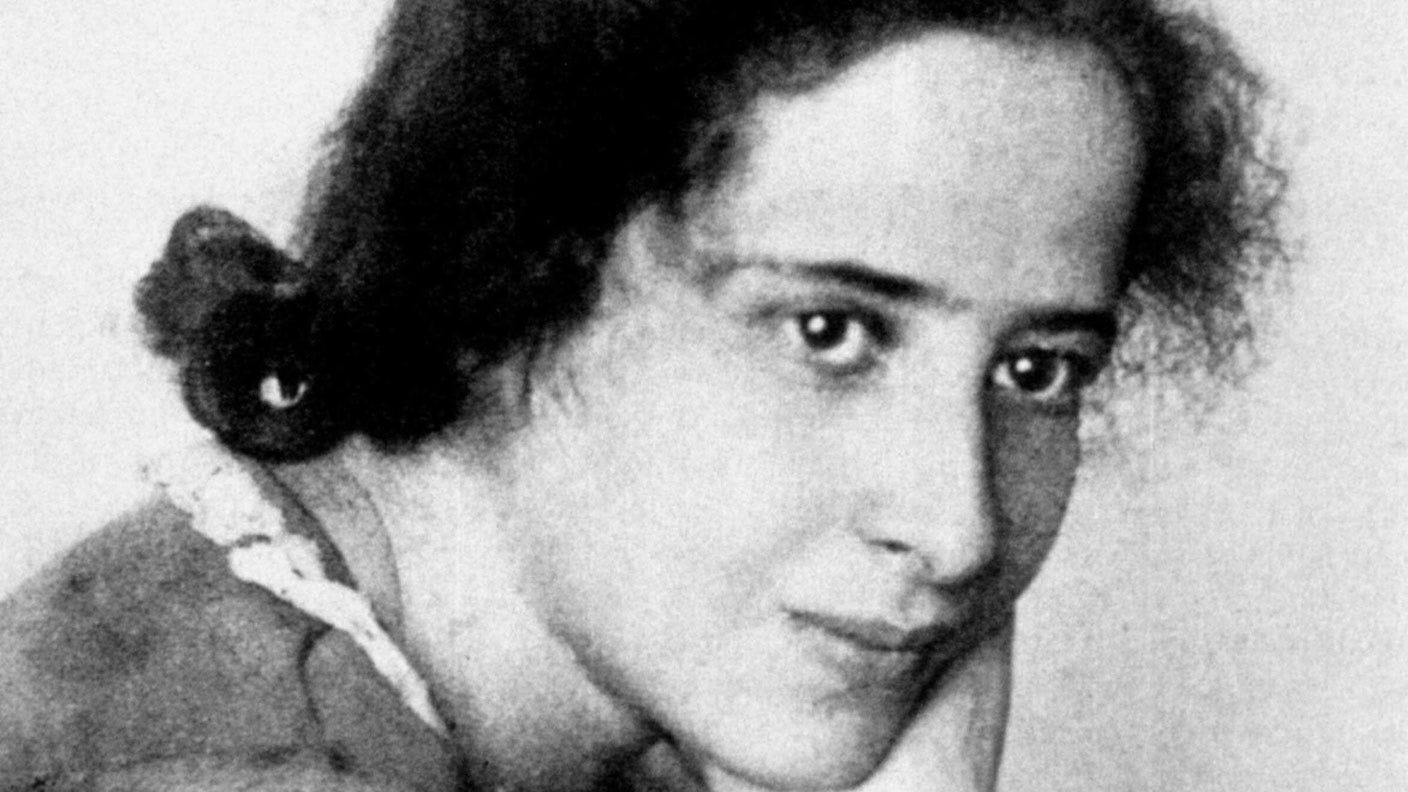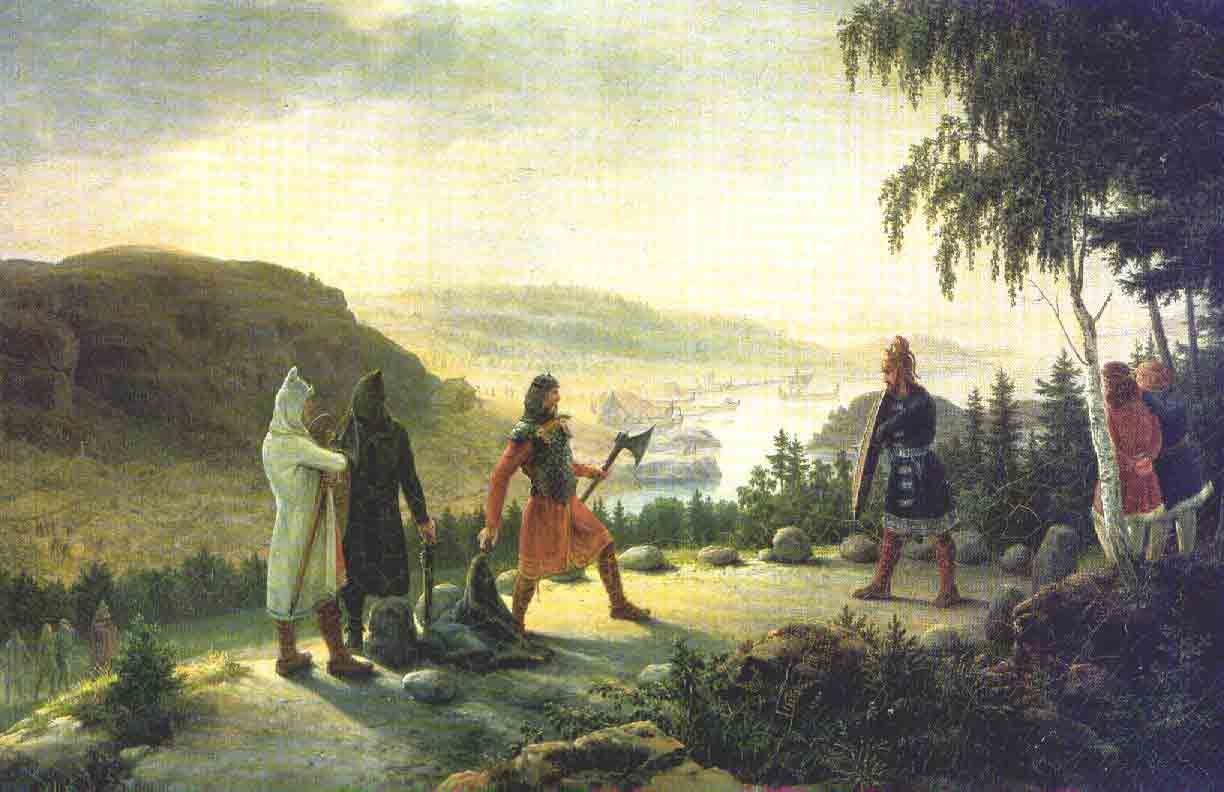The Radical Power of Forgiveness
Hannah Arendt on ending a blood feud.
One of the moral lessons that almost all of us are taught as children is to forgive and forget when we’ve been wronged.
Forgiveness is, of course, easier to preach than to practice. As a child, it’s particularly difficult to let go of the feeling of being hurt, and – more than that – hold no grudge against the person who committed that wrong. Equally, plenty of us find this hard to live up to as adults, perhaps because the slights we suffer tend to become deeper and more complex with age.
I’m sure everyone reading this can remember a time when they were hurt by a friend, enemy, sibling, or rival. The hurt in question could have been physical or emotional; accidental or intentional. Regardless, the advice given by others may well have taken the same form: turn the other cheek; forgive and forget.
Perhaps because of the ubiquity of this advice, it’s easy to take the phenomenon of forgiveness for granted. What exactly does it mean to forgive, though – and why does it matter?
The cycle of retribution
Image: Hannah Arendt, fity.club
One of the great philosophers of forgiveness was the political theorist Hannah Arendt. According to Arendt, forgiveness has a radical power: the power to transform the course of human affairs by arresting the cycle of vengeance that could otherwise prevail.
To see what Arendt means, it’s instructive to firstly think of a culture in which forgiveness plays little or no part.
When reading that, you may have felt your mind turning to great Mafia dramas like The Godfather or The Sopranos. In these stories, organised crime ‘families’ are often engaged in shocking acts of retributive violence, with little scope for forgiveness. However, Mafia dramas are gripping partly because they exist in a criminal underworld that overlaps with mainstream society, in tension with the latter’s norms.
More thoroughly alien to our own culture is the pre-Christian Norse world of over a thousand years ago. Viking society and its ethos are vividly recounted in the great Icelandic sagas, the richest of which is perhaps Njáls Saga. This saga tells the story of a blood feud that spans decades, draws in several Icelandic families, involves over two hundred deaths, and climaxes with the titular Njál and his family being burned alive in their own home.
What, you may be wondering, was the momentous event that set off such a horrific chain of violence? It was, in fact, the slightest of slights. Njál’s wife, Bergthora, asks another woman, Hallgerðr, to move along a dais to make room for her, and Hallgerðr rudely refuses. That’s it. Countless deaths, all ultimately springing from someone refusing to move along a platform.
Unsurprisingly, the characters in Njáls Saga occasionally rue the blood feud they’re involved in. What’s fascinating, though, is that at no point does the narrator suggest that the cycle of retributive violence might be halted on strictly ethical grounds. On the contrary, in the Viking world, honour and justice actually require that vengeance is taken against those who have committed a wrong.
It’s this feature of Norse life, above all, that leads to the bloodshed depicted in Njáls Saga. What the Vikings lacked, in other words, was an ethical means of arresting the cycle of violence.
Action and reaction
Image: Njáls Saga, fulltextarchive.com
For Arendt, forgiveness is the means by which a cycle of tit-for-tat harms can be broken.
Unlike animals, human beings are, she says, political creatures. For Arendt, this essentially means that we live in a social world built upon speech. Through the latter, we encounter other people as people, seeing into their lives and perspectives: accordingly, we discover the uniqueness of each human being – that no two people ever have been, or will be, exactly the same. In our uniqueness, we are, therefore, all equal.
In that shared world built on speech, we are able to act. This is an odd claim, but the reason why is that action has a very specific meaning for Arendt: for her, action is the ability to undertake something new that changes the course of human events. We are actors because we can go beyond animal instinct and instead direct and coordinate ourselves and other people in novel ways.
One of Arendt’s favourite examples was the 1776 Declaration of Independence, which was clearly a monumental act in her sense of the word. It was a novel occurrence, instigated through a declaration, which set in chain a huge sequence of events encompassing millions of lives. Her definition of action also encompasses, however, Hallgerðr’s refusal to move along the dais in Njáls Saga. When Hallgerðr undertook this novel speech act she instigated a course of events that would eventually take in multiple generations of Icelanders.
What is distinct about the blood feud begun by Hallgerðr’s act is that it took a retributive turn: her action was met with a reaction, which in turn led to violent consequences that triggered equal or greater violence, and so on. Events always have unpredictable and irreversible consequences, Arendt suggests – in this case, fatal ones.
Breaking the cycle
There are two ways in which human beings have traditionally coped with the agony sometimes caused by the unpredictability and irreversibility of action.
The first is to withdraw from the centre of the political realm to its margins. As human beings, we can never cease to be political creatures, but it is possible to live a life on the edge of mainstream society. This is the solution advocated by those philosophers and religious practitioners who have, quite reasonably, bemoaned the messiness of human affairs, and preferred to retreat into a relatively hermetic existence. The Greek philosopher Epicurus is one example of this, the medieval Irish monks of Skellig Michael another.
The second – far less dramatic and yet more common – solution is to employ forgiveness. When we forgive we partially absolve the wrongdoer of their action, or the consequences thereof. We effectively announce that we will no longer think of the wrongdoer primarily as a wrongdoer, but instead as a rounded person once again. In this way, we are transformed as individuals, in that a psychological change takes place within us when we forgive, and at the same time the relation between ourselves and the person who wronged us is altered too.
Precisely because of this relational dimension, forgiveness is interpersonal. Unlike withdrawal to the margins of political life, which can be an individual decision, nobody can forgive themselves. Forgiveness pertains to the basic fact that we never live and act in total isolation, but always in the presence of others – whether those are friends and family, or people whose names I may never know, but who I might have touched through my actions.
Without forgiveness to reset human relationships, there is always the risk of tit-for-tat harms that threaten to destabilise an entire community, as portrayed in Njáls Saga. This is, perhaps, the great power of forgiveness: not only to forgo, within myself, grievances that might overwhelm me – but also to arrest the cycle of wrongdoing that might come to define our relationships.
In that sense, it’s not such a bad moral to preach or practice.







I read an interesting Catholic brochure about forgiveness. In order for true forgiveness to occur, the two parties--wrongdoer and wronged--must be in at-one-ment. That is ATONEMENT wherein both parties come to understanding and feeling for one another. That always made sense to me. How can one "forgive" a person or group, when one has no access to that person or group?